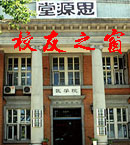|
朱文俊
朱文俊,天津人。曾任我班体育委员, 铁饼标枪等运动项目上曾多次为南开大学取得荣誉。 毕业后分配到北京语言学院任教授, 曾任英语系主任,外国语言学研究所所长, 博士生导师。从事人类语言学、词语语义学、翻译理论、符号学等方面的研究; 我国最早提出在外语教学中注入文化因素的学者之一。
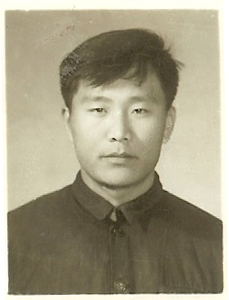
朱文俊 1965
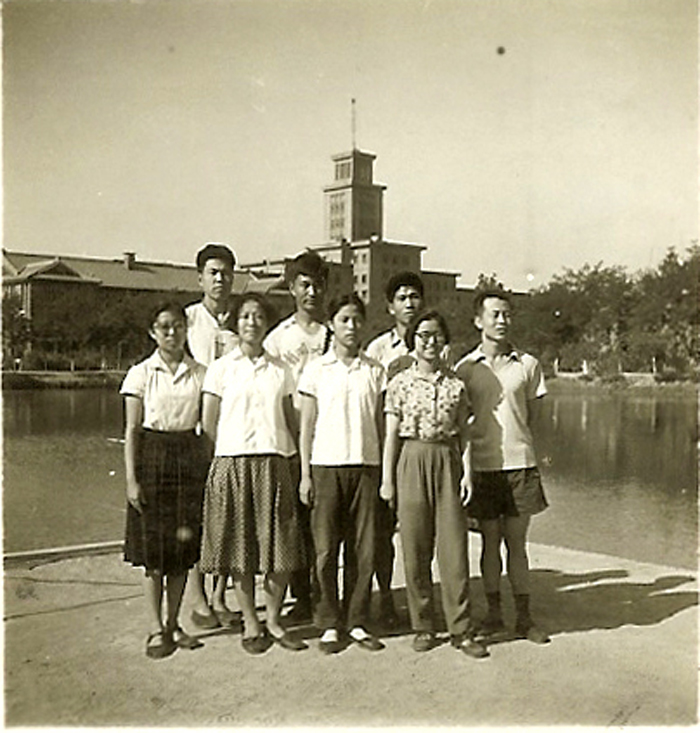
毕业照后排左起第二人为朱文俊 1965
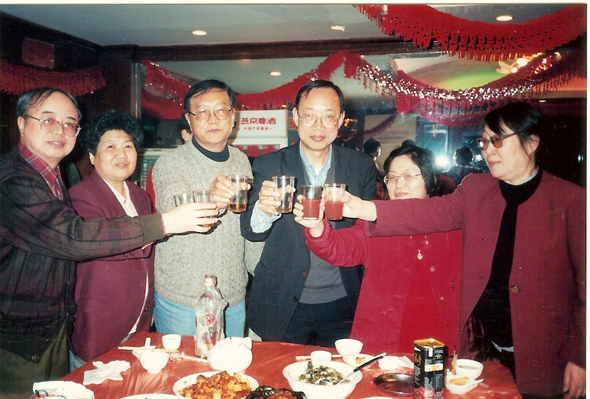
左起第三人为朱文俊 1999,北京
 主要论文: 主要论文:
"声音的象征意念"
"英语语法研究的主要流派"
"理解与对应" |
 主要专著: 主要专著:
现代英语语言与文化研究
人类语言学论题研究 |
 主要译著: 主要译著:
历史语法学理论与汉语历史语法 |
  
|
American Poet Walt Whitman (1819-1892) |
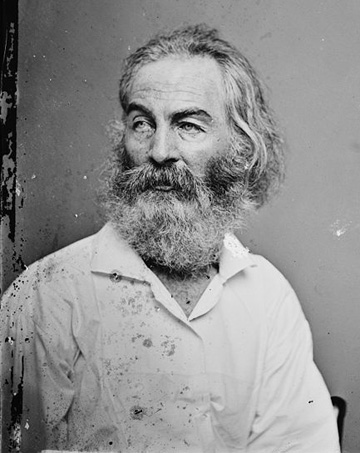
Walt Whitman, circa 1860, by Mathew Brady
(The picture is in the public domain.)
Walter Whitman (1819 – 1892) was an American poet, essayist, journalist, and humanist. He was a part of the transition between Transcendentalism and realism, incorporating both views in his works. Whitman is among the most influential poets in the American canon, often called the father of free verse. His work was very controversial in its time, particularly his poetry collection Leaves of Grass, which was described as obscene for its overt sexuality..
Born on Long Island, New York, Whitman worked as a journalist, a teacher, a government clerk, and a volunteer nurse during the American Civil War in addition to publishing his poetry. Early in his career, he also produced a temperance novel, Franklin Evans (1842). Whitman's major work, Leaves of Grass, was first published in 1855 with his own money. The work was an attempt at reaching out to the common person with an American epic. He continued expanding and revising it until his death in 1892. After a stroke towards the end of his life, he moved to Camden, New Jersey where his health further declined. He died at age 72. Whitman was concerned with politics throughout his life. He supported the Wilmot Proviso and opposed the extension of slavery generally, but did not believe in the abolitionist movement.
 
A Sight In Camp
by Walt Whitman |
|
A SIGHT in camp in the day-break grey and dim,
As from my tent I emerge so early, sleepless,
As slow I walk in the cool fresh air, the path near by the hospital
tent,
Three forms I see on stretchers lying, brought out there, untended
lying,
Over each the blanket spread, ample brownish woollen blanket,
Grey and heavy blanket, folding, covering all.
Curious, I halt, and silent stand;
Then with light fingers I from the face of the nearest, the first,
just lift the blanket:
Who are you, elderly man so gaunt and grim, with well-grey'd hair,
and flesh all sunken about the eyes?
Who are you, my dear comrade? 10
Then to the second I step--And who are you, my child and darling?
Who are you, sweet boy, with cheeks yet blooming?
Then to the third--a face nor child, nor old, very calm, as of
beautiful yellow-white ivory;
Young man, I think I know you--I think this face of yours is the face
of the Christ himself;
Dead and divine, and brother of all, and here again he lies.
|
|
One's Self I Sing
by Walt Whitman |
|
ONE'S-SELF I sing--a simple, separate Person;
Yet utter the word Democratic, the word En-masse.
Of Physiology from top to toe I sing;
Not physiognomy alone, nor brain alone, is worthy for the muse--I say
the Form complete is worthier far;
The Female equally with the male I sing.
Of Life immense in passion, pulse, and power,
Cheerful--for freest action form'd, under the laws divine,
The Modern Man I sing. |
|
Song of Myself, I
by Walt Whitman |
|
I Celebrate myself, and sing myself,
And what I assume you shall assume,
For every atom belonging to me as good belongs to you.
I loafe and invite my soul,
I lean and loafe at my ease observing a spear of summer grass.
My tongue, every atom of my blood, form'd from this soil,
this air,
Born here of parents born here from parents the same, and
their parents the same,
I, now thirty-seven years old in perfect health begin,
Hoping to cease not till death.
Creeds and schools in abeyance,
Retiring back a while sufficed at what they are, but never
forgotten,
I harbor for good or bad, I permit to speak at every hazard,
Nature without check with original energy.
|
|
When I Heard the Learned Astronomer
by Walt Whitman |
|
When I heard the learn'd astronomer,
When the proofs, the figures, were ranged in columns before me,
When I was shown the charts and diagrams, to add, divide,
and measure them,
When I sitting heard the astronomer where he lectured with
much applause in the lecture-room,
How soon unaccountable I became tired and sick,
Till rising and gliding out I wander'd off by myself,
In the mystical moist night-air, and from time to time,
Look'd up in perfect silence at the stars |
|
Song of myself, 6
by Walt Whitman
A child said What is the grass? fetching it to me with full hands;
How could I answer the child? I do not know what it is any more
than he.
I guess it must be the flag of my disposition, out of hopeful green
stuff woven.
Or I guess it is the handkerchief of the Lord,
A scented gift and remembrancer designedly dropt,
Bearing the owner's name someway in the corners, that we may see
and remark, and say Whose?
Or I guess the grass is itself a child, the produced babe of the
vegetation.
Or I guess it is a uniform hieroglyphic,
And it means, Sprouting alike in broad zones and narrow zones,
Growing among black folks as among white,
Kanuck, Tuckahoe, Congressman, Cuff, I give them the same, I
receive them the same.
And now it seems to me the beautiful uncut hair of graves.
Tenderly will I use you curling grass,
It may be you transpire from the breasts of young men,
It may be if I had known them I would have loved them,
It may be you are from old people, or from offspring taken soon out
of their mothers' laps,
And here you are the mothers' laps.
This grass is very dark to be from the white heads of old mothers,
Darker than the colorless beards of old men,
Dark to come from under the faint red roofs of mouths.
O I perceive after all so many uttering tongues,
And I perceive they do not come from the roofs of mouths for
nothing.
I wish I could translate the hints about the dead young men and
women,
And the hints about old men and mothers, and the offspring taken
soon out of their laps.
What do you think has become of the young and old men?
And what do you think has become of the women and children?
They are alive and well somewhere,
The smallest sprout shows there is really no death,
And if ever there was it led forward life, and does not wait at the
end to arrest it,
And ceas'd the moment life appear'd.
All goes onward and outward, nothing collapses,
And to die is different from what any one supposed, and luckier. |
|
Who Is Now Reading This?
by Walt Whitman |
|
May-be one is now reading this who knows some wrong-doing of my past
life,
Or may-be a stranger is reading this who has secretly loved me,
Or may-be one who meets all my grand assumptions and egotisms with
derision,
Or may-be one who is puzzled at me.
As if I were not puzzled at myself!
Or as if I never deride myself! (O conscience-struck! O self-
convicted!)
Or as if I do not secretly love strangers! (O tenderly, a long time,
and never avow it;)
Or as if I did not see, perfectly well, interior in myself, the stuff
of wrong-doing,
Or as if it could cease transpiring from me until it must cease |
|
Adieu To A Solider
by Walt Whitman |
|
ADIEU, O soldier
You of the rude campaigning, (which we shared,)
The rapid march, the life of the camp,
The hot contention of opposing fronts--the long manoeuver,
Red battles with their slaughter,--the stimulus--the strong, terrific
game,
Spell of all brave and manly hearts--the trains of Time through you,
and like of you, all fill'd,
With war, and war's expression.
Adieu, dear comrade!
Your mission is fulfill'd--but I, more warlike,
Myself, and this contentious soul of mine, 10
Still on our own campaigning bound,
Through untried roads, with ambushes, opponents lined,
Through many a sharp defeat and many a crisis--often baffled,
Here marching, ever marching on, a war fight out--aye here,
To fiercer, weightier battles give expression. |
|
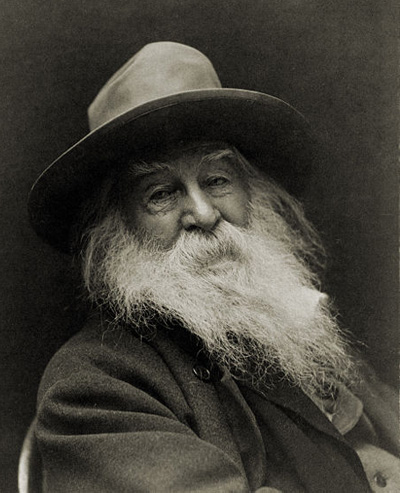
This image was made in 1887 in New York, by photographer George C. Cox.
The image is said to have been Whitman's favorite from the Cox photo-session;
there were about seven images made at that time. Whitman so admired this
image that he even sent a copy to the poet Tennyson in England.
(This picture is in the public domain.)
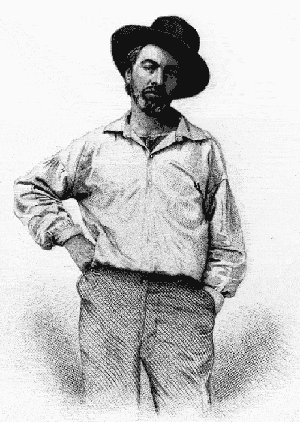
Walt Whitman, age 37, frontispiece to Leaves of Grass,
Fulton St., Brooklyn, N.Y., steel engraving by Samuel Hollyer
from a lost daguerreotype by Gabriel Harrison.
(This work of art is in the public domain.)
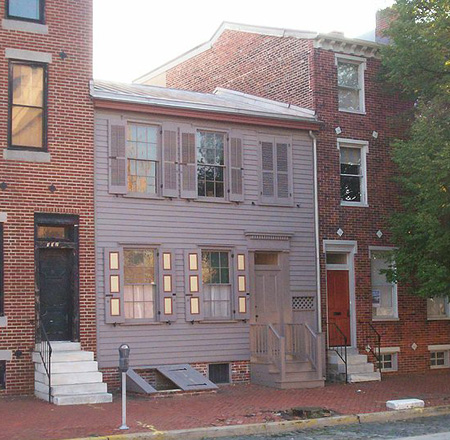
The Walt Whitman House in Camden, NJ, where Walt Whitman spent the
last years of his life. Note: Whitman's House is the gray one in the middle,
not made of brick. The house to the right serves as the Visitors Center.
Photo by Midnightdreary. (The picture has been released into the public domain.)
 
|
|
